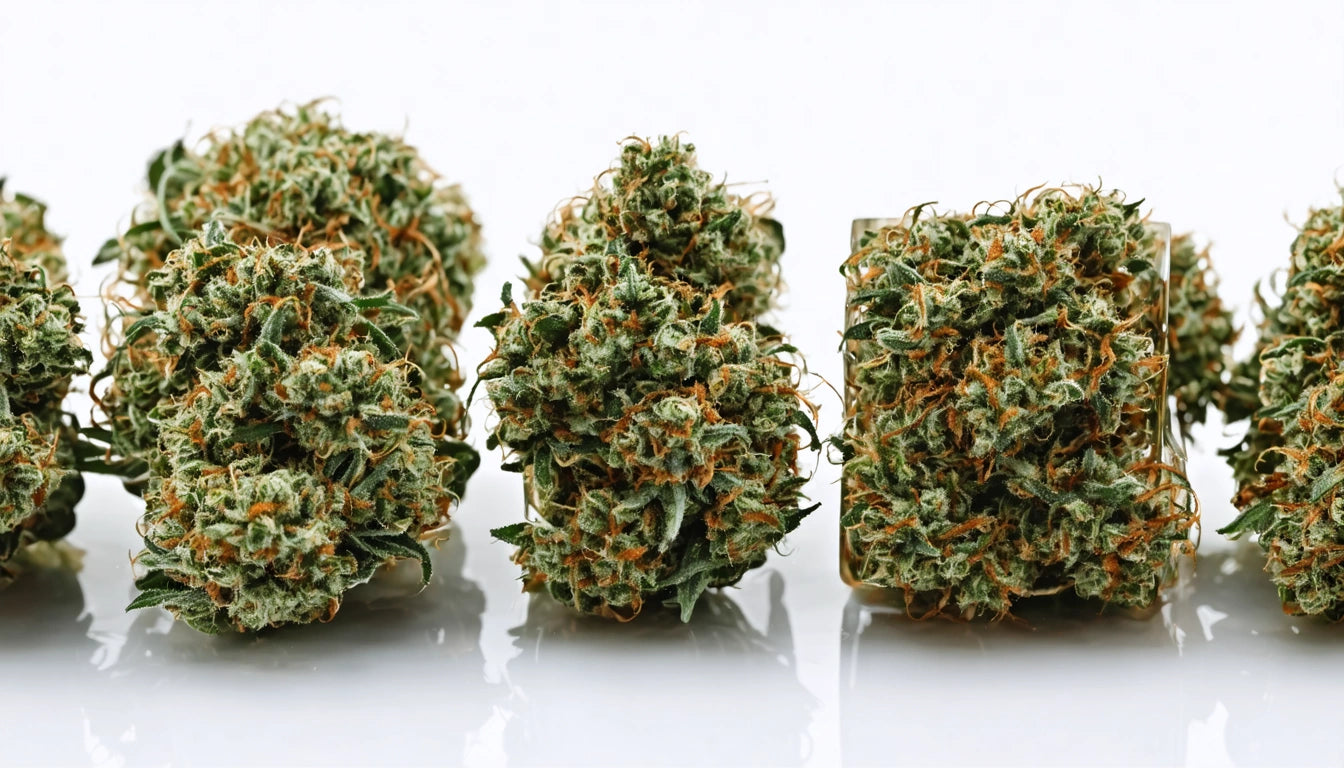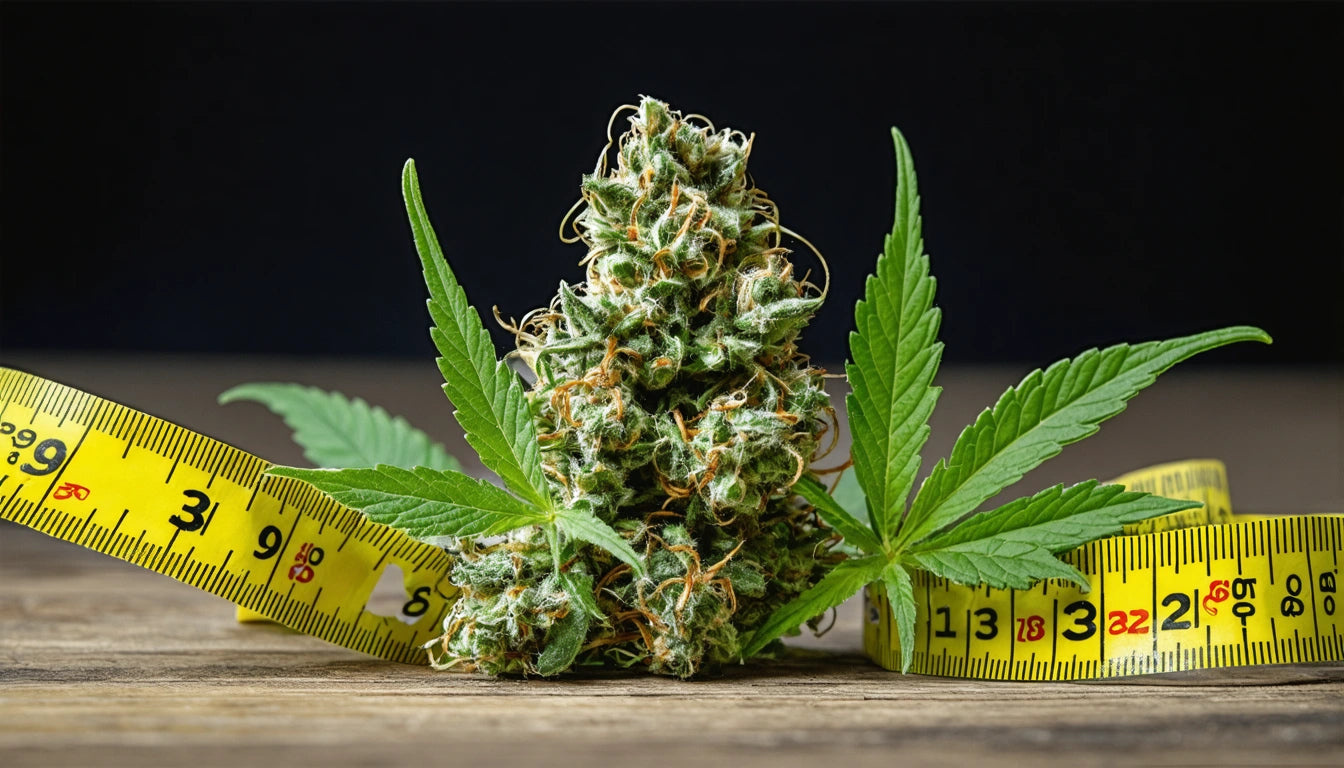Table of Contents
The Impact of Delta 8 on Blood Pressure and Stroke Risk
As delta 8 THC products gain popularity in the cannabis market, questions about their health impacts have naturally followed. Among the most important concerns are cardiovascular effects, particularly regarding blood pressure regulation and stroke risk. This article explores what current research tells us about these relationships and provides context for consumers with cardiovascular concerns.
Understanding Delta 8 THC
Delta 8 THC (delta-8-tetrahydrocannabinol) is a cannabinoid found naturally in cannabis plants, though typically in small amounts. It shares structural similarities with delta 9 THC, the primary psychoactive compound in cannabis, but with some notable differences in effects.
According to research on delta 8 uses and benefits, this cannabinoid produces milder psychoactive effects compared to delta 9 THC. It interacts with the body's endocannabinoid system, particularly the CB1 and CB2 receptors, which are present throughout the body, including the cardiovascular system.
Delta 8 and Cardiovascular Effects
The endocannabinoid system plays a role in regulating various cardiovascular functions, including blood pressure. When cannabinoids like delta 8 THC interact with this system, they can potentially influence cardiovascular parameters.
As explained in this overview of delta 8 effects and safety, the compound's impact on the cardiovascular system is still being studied. Current research suggests that cannabinoids can have complex, sometimes contradictory effects on blood pressure depending on dosage, individual factors, and consumption methods.
Does Delta 8 Raise Blood Pressure?
The question "does delta 8 raise blood pressure" doesn't have a simple answer. Acute administration of cannabinoids, including delta 8 THC, can cause temporary increases in heart rate and blood pressure in some individuals. This is particularly common during the initial phase after consumption.
Several factors influence whether delta 8 might raise blood pressure:
- Dosage: Higher doses may produce more pronounced cardiovascular effects
- Individual tolerance: Regular users may experience different effects than new users
- Consumption method: Inhalation methods typically produce more immediate effects than edibles
- Pre-existing conditions: Those with hypertension may respond differently
The quality and packaging of delta 8 products can also impact their effects and safety. Properly packaged products in secure, compliant containers help maintain product integrity and provide important dosage information that can help users moderate their intake appropriately.
Does Delta 8 Lower Blood Pressure?
Interestingly, while acute use might temporarily raise blood pressure in some users, there's evidence suggesting that with regular use, cannabinoids might actually contribute to lower blood pressure in certain individuals. This phenomenon, known as "tolerance," involves the body adapting to the presence of cannabinoids over time.
The question "can delta 8 lower blood pressure" is particularly relevant for those with hypotension (low blood pressure) or those taking blood pressure medications. For these individuals, the potential blood pressure-lowering effects could potentially compound existing conditions or medications.
As explained in this comparison of THC variants, delta 8's effects are generally considered milder than delta 9, which might translate to less pronounced cardiovascular effects, though more research is needed to confirm this.
Delta 8 and Stroke Risk Factors
The concern about whether "can delta 8 cause stroke" stems from cannabinoids' potential effects on blood pressure, heart rate, and vascular function. While there's limited research specifically on delta 8 and stroke risk, we can consider several relevant factors:
- Blood pressure fluctuations: Rapid changes in blood pressure could potentially increase risk in vulnerable individuals
- Vasodilation effects: Cannabinoids can affect blood vessel dilation
- Interaction with medications: Delta 8 may interact with blood thinners or other cardiovascular medications
- Individual risk factors: Pre-existing conditions like hypertension or previous stroke history increase risk
According to this guide to delta THC variants, more clinical research is needed to fully understand the relationship between delta 8 consumption and stroke risk.
Consumption Methods and Blood Pressure Effects
How delta 8 is consumed can significantly impact its cardiovascular effects. Different consumption methods result in varying onset times, potency, and duration of effects:
- Inhalation (vaping/smoking): Produces rapid effects with potentially more immediate cardiovascular impact
- Edibles: Slower onset but longer-lasting effects, with potentially more gradual cardiovascular changes
- Tinctures/oils: Moderate onset time with effects dependent on dosage
When considering whether "can delta 8 cause high blood pressure," it's important to note that faster-acting methods like inhalation might be more likely to cause acute blood pressure changes compared to slower-acting methods.
The potency comparison between cannabinoids shows that delta 8 is generally less potent than delta 9, which might suggest milder cardiovascular effects, though individual responses vary.
Safety Recommendations for Cardiovascular Health
For individuals concerned about delta 8's impact on blood pressure and stroke risk, several precautionary measures are advisable:
- Consult healthcare providers: Especially important for those with existing cardiovascular conditions or those taking medications
- Start with low doses: Begin with minimal amounts to assess individual response
- Monitor blood pressure: Consider checking blood pressure before and after use
- Choose quality products: Select lab-tested products from reputable sources
- Be aware of warning signs: Know symptoms that warrant medical attention
- Consider consumption method: Choose methods with more gradual onset if concerned about acute effects
Understanding the relationship between delta 8 and cardiovascular health remains an evolving area of research. While current evidence suggests complex and individualized effects on blood pressure, more comprehensive studies are needed to fully address questions about whether delta 8 can raise or lower blood pressure and its potential relationship to stroke risk. In the meantime, cautious use and medical consultation remain the most prudent approach for those with cardiovascular concerns.











Leave a comment
All comments are moderated before being published.
This site is protected by hCaptcha and the hCaptcha Privacy Policy and Terms of Service apply.